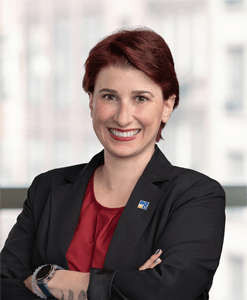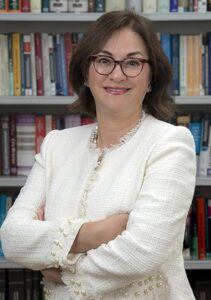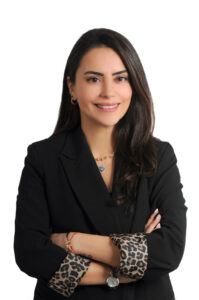
The International Lawyers Network (ILN) understands the importance of delivering high quality service through our member firms to their clients. As one of the largest networks of experienced attorneys in the world, the ILN provides a platform for clients to access quality legal professionals worldwide, with the cost-effectiveness and personalized service only independent, regional law firms can provide.
The ILN is a non-exclusive network of high-quality mid-sized law firms, which operates to create a global platform for the provision of legal services, particularly for clients with international needs. With a presence in 67 countries, it is exceptionally well placed to offer seamless legal services, often of a cross-border nature from like-minded and quality legal practices.
As a result of the increasingly global nature of our economy, many companies find that cross-border transactions and dispute resolution, along with international taxation and employment issues, are occupying an increasing amount of time and attention.
To keep pace with this changing environment, they need quick and reliable advice on the laws, rules and regulations which affect their business dealings around the world. The International Lawyers Network provides a reliable framework for businesspeople to find the help they need.
International Lawyers Network members meet the following criteria:
Firms should be independent, responsible for their own staffs and work practices.
Firms should have broadly based commercial, corporate, business and litigation practices, with a focus on growing and developing new clients.
They should be mid-sized in their jurisdictions, with substantial partner involvement and oversight in client matters.
Members should be well-established within their local jurisdictions.
Members should have strong domestic focus and experience, coupled with significant expertise in international business matters, with English fluency.
Membership in the ILN is non-exclusive and participation in regional and practice-specific networks is encouraged. However, it is preferred that members are not part of other international legal networks.
Firms must demonstrate an ongoing commitment to the operation and development of the International Lawyers Network, including, but not limited to, participation in Annual and Regional Meetings, timely payment of dues, prompt response to ILN requests and referrals from other firms, and participation in additional ILN activities.
Members must hold an appropriate level of liability insurance for their jurisdiction, to be reviewed by the Board of Directors.
Firms receive a number of benefits as part of their membership in the ILN. These include:
- The ILN offers wide coverage in major commercial centers around the world, so wherever your clients’ needs are, you have confidence that the ILN member firm will deliver the same level of service that you do.
- Your ILN relationships go beyond each individual file – these relationships ensure that your files are handled by a firm that will treat your clients the way that you treat your clients.
- Membership enables our firms’ clients to have quick access to the local knowledge of law firms in foreign jurisdictions without the expense of opening and maintaining an office in other countries.
- The ILN offers its members a smoother delivery of your services to your clients because each of our firms is vetted to ensure they are of the highest quality.
- The relationships among our member firms allow for the exchange of business opportunities for the benefit of you and your clients.
- The International Lawyers Network is a powerful marketing tool – from enhancing the visibility of our members through our social media outlets to recommendations and referrals by firms that believe in your expertise, our members are consistently in the spotlight for existing and prospective clients.
- The ILN Administration works hand-in-hand with each of our members to ensure that they are able to make the most out of their ILN membership, from addressing individual concerns and supporting firm efforts to assisting members in collaborating with each other.
- The ILN Administration uses new technologies to raise the profile of the ILN and its members – Social networking through Twitter, LinkedIn and Facebook, increased member contact and education through ILN-hosted webinars, and the ILN blog “Zen and the Art of Legal Networking,” aid in increased exposure for member firms and the ILN.
In 2021, the ILN was honored as Global Law Firm Network of the Year by The Lawyer European Awards, and in 2016, 2017, and 2022, they were shortlisted as Global Law Firm Network of the Year. Since 2011, the Network has been listed as a Chambers & Partners Leading Law Firm Network, increasing this ranking in 2021 to be included in the top two percent of law firm networks globally. Today, the ILN remains at the very forefront of legal networks in its reach, capability, and depth of expertise.
Network members (and date joined)
& De Bandt – 2022
4M Legal and Tax – 2023
A. & K. Metaxopoulos and Partners Law Firm – 2014
Acumum Legal & Advisory – 2015
Ahlawat & Associates – 2019
Akerman – 2022
BNM Advocates – 2022
BRAUNEIS Rechtsanwälte GmbH – 1994
BROSA Abogados y Economistas – 2004
Burton Partners – 2008
C. Mputhia Advocates – 2022
Connolly Gallagher LLP – 2016
Cordero & Cordero Abogados – 2009
DAHL Law Firm – 2006
Davis Malm – 2011
Davis+Gilbert LLP – 2011
Dej-Udom & Associates – 1995
Ekenberg & Andersson Advokatbyrå – 2006
Epstein Becker & Green, P.C. – 1988
EXPLegal – Italian and International Law Firm – 2005
Fenno Attorneys at Law – 2018
Ferrari Pedeferri Boni Studio Legale Associato – 2005
Fladgate LLP – 2002
Fogler Rubinoff LLP – 1990
Gamboa, García & Cardona Abogados – 2016
Goodwins Law Corporation – 2002
GRUNDWERK Legal – 2008
Hellström – 1994
Howard & Howard Attorneys PLLC (Detroit) – 2012
Howard & Howard Attorneys PLLC (Las Vegas) – 2019
Jalsovszky – 2014
Joseph Shem Tov & Co. – 2019
Kalus Kenny Intelex – 2020
Kapunan & Castillo Law Offices – 2007
Law firm Kavčič, Bračun & Partners, o.p., d.o.o. – 2022
KLA Advogados – 2014
Lee and Li, Attorneys-at-Law – 2019
Lewis Rice LLC – pre-2001
LexCounsel Law Offices – 2010
Llinks Law Offices – 2019
LLPO Law Firm – 2021
López-Ibor Abogados – 2021
Lutgen & Associés – 1998
Martinez Berlanga Abogados – 2018
Martinez, Algaba, de Haro y Curiel, S.C. – 2020
McDonald Hopkins LLC – 1999
McDonald Hopkins LLC – Chicago – 2020
MGRA & Associados – 2006
Miller Samuel Hill Brown LLP – 1997
Müller & Partner Rechtsanwälte – 2015
Ogden Murphy Wallace, P.L.L.C.- pre-2001
Økland & Co DA – 2011
OMF Otto Mittag & Partner – 2017
Özcan & Natan Attorney Partnership – 2005
PAGBAM | SCHWENCKE Chile – 2012
PETERKA & PARTNERS advokátní kancelár s.r.o – 2002
PETERKA & PARTNERS s.r.o. (Romania) – 2018
PETERKA & PARTNERS LLC (Ukraine) – 2021
PlasBossinade Advocaten N.V. – 2014
Reinhart Marville Torre, société d’avocats – 2015
Robinson Sheppard Shapiro – 2001
Royer Cooper Cohen Braunfeld LLC – 2017
Salaberren & López-Sansón Abogados – 2016
Salloum & Partners L.L.C. – 2008
SFKS CK Kwong, Solicitors – 2022
Shutts & Bowen LLP – 2002
Sit, Fung, Kwong & Shum – 1998
SJA Avocats Ltd – 2004
Stradling Yocca Carlson & Rauth – 2004
TGS Baltic – 2010
Torres Law – International Trade & National Security – 2017
UdinkSchepel Advocaten – 1991
Wada & Watanabe – 1995
Wagner Rechtsanwalts und Notarkanzlei – 2022
wkf legal ag – 1991
WOLPERT RECHTSANWÄLTE PartG mbB – 2007
 How has the pandemic and the flexi-working revolution affected the network model?
How has the pandemic and the flexi-working revolution affected the network model?

 What was it that made you want to become a lawyer?
What was it that made you want to become a lawyer? out your education journey starting at Istanbul University in 1998 and why you picked law.
out your education journey starting at Istanbul University in 1998 and why you picked law. Tell us about your career choice and journey. What inspired you to become a lawyer?
Tell us about your career choice and journey. What inspired you to become a lawyer?  Tell us about your journey into law and what made you choose it as your profession.
Tell us about your journey into law and what made you choose it as your profession. Tell us about your career choice and journey. What inspired you to become a lawyer?
Tell us about your career choice and journey. What inspired you to become a lawyer?